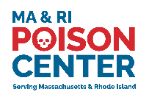Prevention & Education
What is Poison?
A poison is a substance that harms the structure or functions of the body in a manner which causes irritation, injury, illness, or even death. Poison exposure can take the form of inhalation, ingestion, absorption through the skin, or injection (as in an insect sting). Some poisons are immediately harmful, while others act more slowly, and yet others become toxic as a result of repeated exposures over time. Poisons also vary in toxicity, which means that certain substances can be very dangerous even in small quantities.
Approximately 70% of poisonings occur in the home. Of these, more than half involve children under 5 years of age. Children 1 and 2 years of age are the group most affected by poisonings. Children are most at risk because their curiosity leads them to touch and taste unknown substances, and because they have low body masses which can be more easily overrun with toxins. Adolescents are also at risk for unintentional and intentional poisonings. About half of poisonings among teens are classified as suicide attempts, and teen experimentation with drugs and alcohol is also a source of poisonings. Among the elderly, poisonings are most often the result of the misuse of medications.
Overview of the MA & RI Poison Center
The MA & RI Poison Center supports outreach education programs to increase awareness of the center’s services and to educate the public about poison prevention information.
The center provides the following public poison prevention educational services:
- Presentations at a variety of locations including community organizations, businesses, senior citizens groups and professional conferences
- Exhibits at health fairs and other events
- Educational material distribution (brochures, magnets, stickers)
- Educational programs in poison prevention
- “Train the Presenter” poison prevention programs for teachers and healthcare professionals
For additional information, please email maripoisoncenter@childrens.harvard.edu
